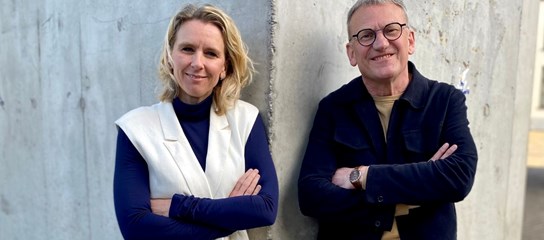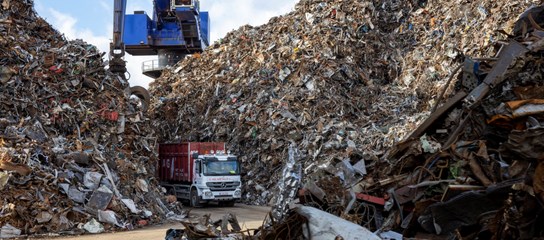Yara Sluiskil to realize world's first project for cross-border CO2 capture and storage project in North Sea Port
The investment was announced Tuesday, November 21, in The Hague, in the presence of Dutch Minister Micky Adriaansens (Economic Affairs and Climate) and Norwegian Ambassador Bård Ivar Svendsen. This Carbon Capture & Storage project (CCS - capture and storage of CO2) in Sluiskil is the first project in the world to capture CO2 and store it across borders. The project is to pave the way for Europe’s CO2 reduction ambition, of which CCS is an important part.
Under the Norwegian seabed
Monday, Nov. 20, was the kickoff of Hydrogen Week in Brussels. In the presence of Norwegian Minister Aasland, Yara announced that it had signed an off-take contract with Northern Lights to store CO2 deep under the Norwegian seabed from 2025. The participating companies behind the Northern Lights joint venture have 25 years of successful experience in the injection and storage of CO2 in seabeds. Yara Sluiskil has more than 30 years of experience capturing, purifying, liquefying and shipping CO2.
CO2 as a raw material
Since the 1980s, Yara Sluiskil has been capturing CO2 from its production process. Some 2.2 million tons per year. Over 60 percent (1.4 million tons) is currently put to direct use as a raw material. Applications of CO2 include bubbles in soft drinks and beer, Adblue to combat nitrogen emissions from diesel engines, fertilizers, a growth regulator for greenhouses, use for caffeine extraction from coffee beans, anaesthetic in slaughterhouses, transportation of pharmaceuticals such as vaccines. The remaining 800,000 tons, currently vented to the atmosphere as pure CO2, will be liquefied starting in 2026 and then shipped to Norway. It will be permanently stored in porous rock 2.6 kilometres under the seafloor.
This Yara investment helps reduce CO2 emissions in the North Sea Port area
Through this project, Yara realizes in one fell swoop more than half of its ambition to reduce 1.5 million tons of CO2 by 2030 compared to 2020. In 1990, the company emitted 5.2 million tons of CO2 in Sluiskil. By 2026 this will be no more than one million tons. During the same period, the volume of finished products increased from 3 to 5 million tons per year.
Green hydrogen
The CCS project positions Yara Sluiskil to take a crucial role in the energy transition. On the one hand, the CCS project reduces CO2 reduction and, on the other hand, Yara Sluiskil is working on large-scale intake of green hydrogen. A connection to the Dutch national hydrogen backbone is planned in 2026. To reduce any uncertainty regarding the availability of sufficient affordable green hydrogen, Minister Adriaansens will make available a conditional grant of EUR 30 million.
Europe
Through the CCS project, Yara Sluiskil almost halves local CO2 emissions in one fell swoop. Relative to the total Dutch chemical industry, which emitted 15.8 million tons in 2022, this project represents a 5.1 percent decrease. This corresponds to the carbon footprint of 100,000 residents, or more than a quarter of province Zeeland's population. In addition, the investment means the preservation of ammonia production and technological know-how in Sluiskil, decarbonization of the food chain, which secures strategic autonomy for Europe.



